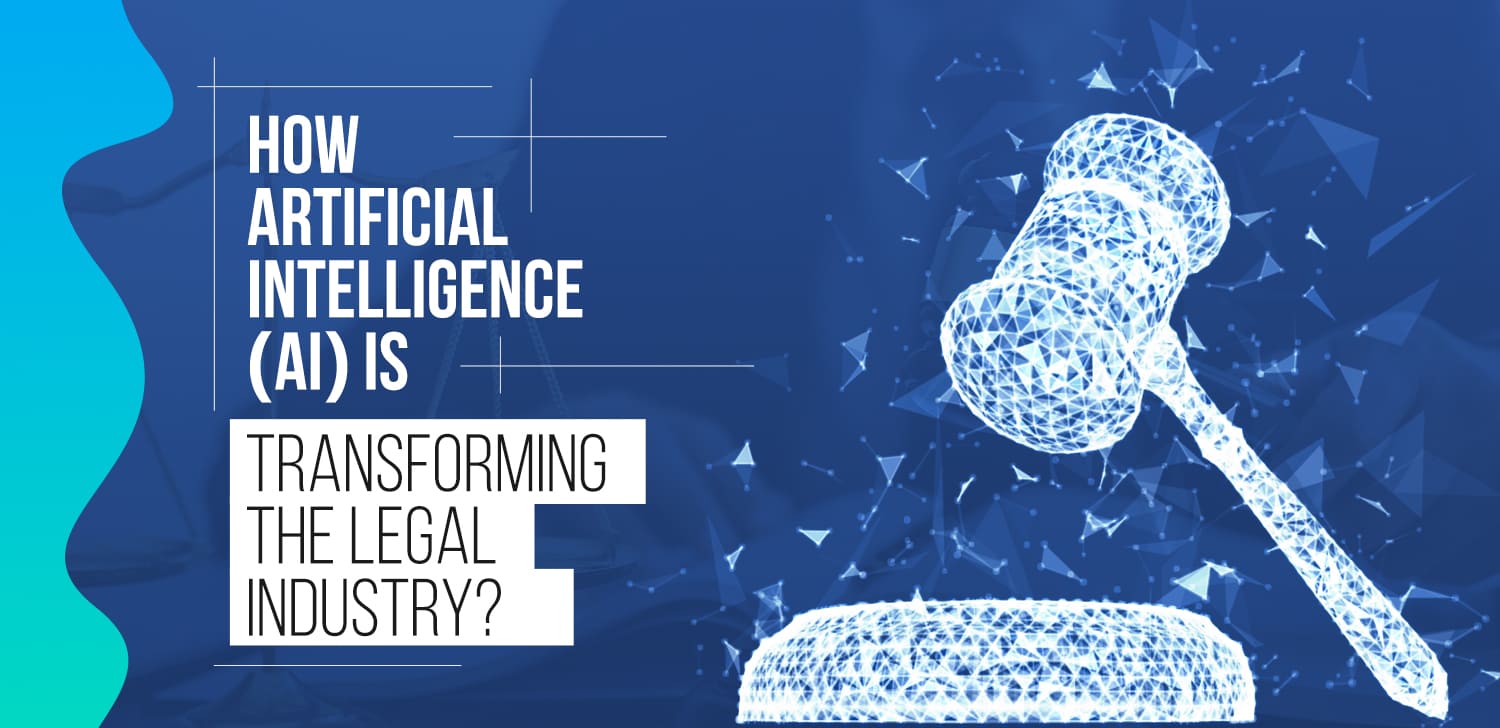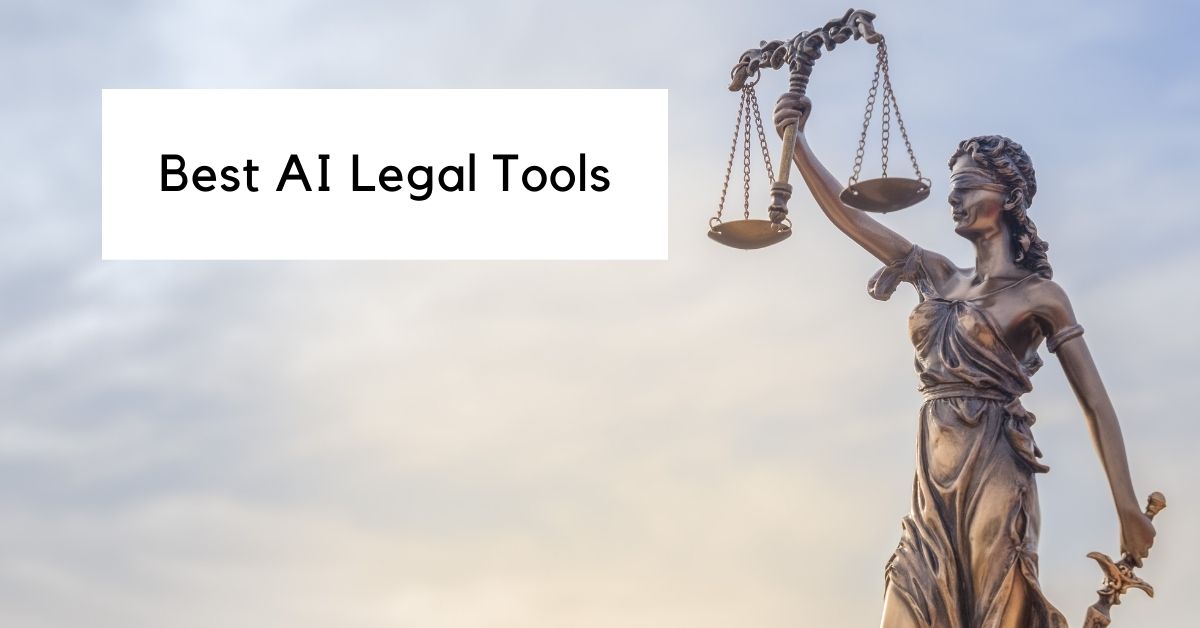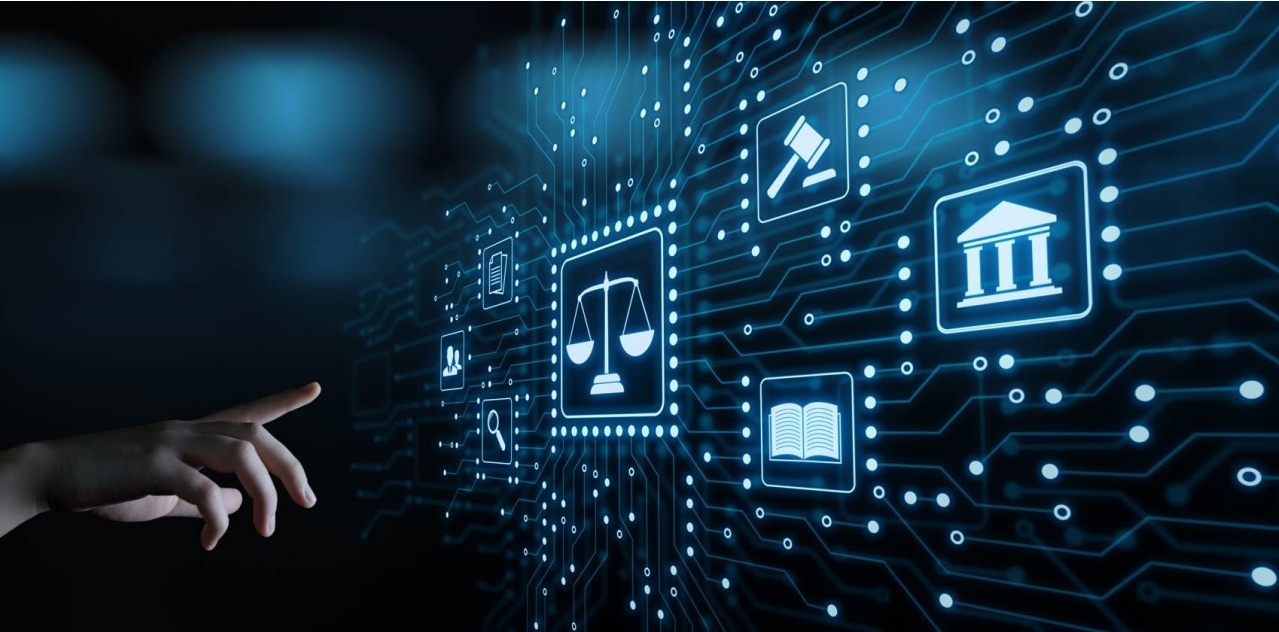
In the legal industry, technology is both a disruptor and a source of innovation. As you become aware of the complexities of modern business models, one thing is clear: Artificial Intelligence is revolutionizing the way legal professionals work.
From streamlining file review processes to predicting case outcomes with remarkable accuracy, AI integration in the legal industry is reshaping the face of our judicial system.
Let’s join us as this blog post will share the details of AI-driven legal technology and explore how AI in the legal industry paves the way for a more efficient, transparent, and accessible legal landscape.
Understanding Legal Tech
Legal tech is termed as the fusion of law & technology. It has emerged as a disruptive force that is reshaping traditional legal practices. It encompasses a diverse array of technologies, aim to
- Streamline workflows
- Enhance decision-making
- Deliver cost-effective solutions
Initially, legal tech primarily focused on automating routine tasks & digitizing documents. However, with the increasing complexity of legal processes and the growing volume of data, there has been a shift towards more advanced technologies such as ML & NLP. Traditional methods of legal practice often involve
- Labor-intensive processes
- Extensive paperwork
- Lengthy turnaround times
The demand for legal services continues to overtake the supply of legal professionals, particularly in underserved communities. In this context, technological innovation in the form of legal tech has become essential for addressing these challenges & modernizing the practice of law.
The Rise of AI in Legal Industry

The emergence of AI in legal industry can be attributed to advancements in AI, including ML, NLP, and predictive analytics, which have enabled legal professionals to
- Automate tasks
- Gain insights from data
- Enhance decision-making processes
Applications of AI in Legal Industry
- Legal Research: AI-powered tools efficiently sift through vast amounts of legal documents, statutes, and case law to provide relevant information and precedents. This saves valuable time for legal researchers.
- Document Review & Analysis: AI algorithms review & analyze legal documents such as contracts, leases, and agreements to identify key clauses, potential risks, and discrepancies, thereby streamlining the due diligence process.
- Predictive Analytics: AI algorithms analyze historical case data to predict case outcomes, assess litigation risk, and inform legal strategies. This enables lawyers to make more informed decisions and better advise their clients.
- Contract Management: AI-powered contract management platforms can automate contract drafting, negotiation, and management processes, reducing errors, improving efficiency, and ensuring compliance with legal requirements. With the added benefit of electronic signatures, organizations can reduce paperwork and move towards fully digital contract workflows.
- Virtual Assistants & Chatbots: AI-driven virtual assistants and chatbots, such as AI Chatbot, can provide legal information, answer common questions, and assist clients with basic legal tasks. This enhances client communication & engagement.
So, we have seen that the integration of AI in legal services is transforming the way legal services are delivered, making them more efficient, cost-effective, and accessible.
Benefits of AI in Legal Industry
As AI continues to evolve & mature, its potential to transform the legal industry and drive positive outcomes will grow. The integration of AI in legal industry has brought about numerous advantages for both law firms and legal departments within organizations.
Check out the benefits below
- Enhanced Efficiency: AI-driven legal tools & platforms have significantly enhanced the efficiency of legal processes by automating repetitive tasks and streamlining workflow management.
- Improved Accuracy: By leveraging machine learning legal applications and NLP techniques, AI systems can analyze complex legal documents with precision, reducing the risk of errors and ensuring greater consistency in decision-making.
- Cost-Effectiveness: It offers cost-effective Artificial Intelligence legal solutions for law firms and legal departments. This enables them to deliver high-quality legal services at a lower cost.
- Advanced Decision-Making: By analyzing historical data and identifying patterns, AI helps lawyers anticipate legal outcomes, assess risks, and advise clients with greater confidence.
AI-Powered Legal Tools & Solutions

AI in legal industry has offered a number of innovative tools tailored to meet the unique needs of legal professionals. These tools enable them to work more efficiently, accurately, and cost-effectively.
Examples of AI-Powered Tools
- ROSS Intelligence: A legal research platform powered by AI that can quickly analyze case law, statutes, and legal documents to provide relevant insights and precedents.
- Kira Systems: A contract analysis tool that uses machine learning algorithms to extract key clauses, identify risks, and streamline the contract review process.
- Casetext: An AI-driven legal research platform that employs natural language processing to analyze case law and statutes, helping lawyers find relevant information more efficiently.
- Evisort: A contract management platform that utilizes AI to automate contract review, extraction, and analysis, enabling organizations to manage their contracts more effectively.
- Luminance: The power of AI lets you quickly review and analyze large volumes of legal documents, identifying potential risks and discrepancies. Want more options for CLM platforms that can help accelerate legal processes? Check out this comprehensive list of the top CLM solutions and find out the best AI-powered contract management options on the market.
Streamlining tasks with AI in legal industry
- Legal Research: AI-powered tools such as ROSS Intelligence and Casetext streamline legal research by analyzing vast amounts of legal data and providing relevant insights and precedents, saving lawyers time and effort.
- Contract Analysis: Tools like Kira Systems and Evisort streamline contract analysis by automatically extracting key clauses, identifying risks, and flagging discrepancies, enabling lawyers to review contracts more efficiently and accurately.
- Document Review: Platforms like Luminance automate document review processes by analyzing large volumes of legal documents, highlighting relevant information, and identifying potential issues, thereby reducing the time and resources required for due diligence and litigation preparation.
Ethical & Regulatory Considerations
While AI holds immense promise, it also comes with some ethical & regulatory concerns within the legal community. Addressing these considerations is essential for ensuring responsible adoption of AI in legal industry.
Ethical Implications of AI Adoption
- Bias & Fairness: AI systems trained on biased data may perpetuate existing disparities and inequalities within the legal system, leading to unfair outcomes for certain groups.
- Transparency & Accountability: Another ethical consideration is the lack of transparency and accountability in AI systems, particularly when it comes to understanding how decisions are made and who is responsible for errors or biases.
- Privacy & Data Protection: AI technologies often require access to large volumes of sensitive data, raising concerns about privacy and data protection.
- Lack of Clear Guidelines: The rapid advancement of AI technology has outpaced the development of regulatory frameworks and guidelines governing its use in the legal sector.
- Cross-Border Issues: Legal practitioners face additional challenges when deploying AI solutions across multiple jurisdictions with differing regulatory requirements and cultural norms.
Guidelines to Ensure Responsible AI Usage
- Transparency & Explainability: Legal professionals should prioritize transparency and explainability in AI systems to ensure that decisions are understandable and accountable.
- Bias Mitigation: Legal practitioners should regularly audit AI systems for bias and take proactive steps to address any disparities or inequalities.
- Data Governance & Privacy: Establishing robust data governance practices and ensuring compliance with privacy regulations are essential for protecting client confidentiality and maintaining trust in AI-powered legal solutions.
The Future Landscape of Legal Tech

As legal tech continues to evolve, the future of law technology holds exciting possibilities for innovation, transformation, and positive impact. By embracing AI in legal industry, you can shape a future where AI/ML for legal services are more efficient, accessible, and responsive.
Predicting Future Legal AI Trends
1. Advanced AI Capabilities: The future of transformative legal tech will likely see the continued evolution of AI technologies, with advancements in
- Machine learning
- Natural language processing
- Predictive analytics
These advancements will enable legal professionals to automate more complex tasks, gain deeper insights from data, and make more informed decisions.
2. Integration of Emerging Technologies: Legal tech is expected to integrate emerging technologies such as
- Blockchain
- Quantum computing
- Augmented reality
These technologies have the potential to bring legal sector AI revolution in areas such as contract management, dispute resolution, and legal research.
3. Focus on Ethical AI: As AI becomes more pervasive in the legal sector, there will be a growing emphasis on ensuring the ethical use of AI technologies. Legal professionals will need to prioritize
- Transparency
- Fairness
- Accountability
Future Potential Legal Tech Innovations
- AI-Powered Virtual Assistants: AI-powered virtual assistants will provide legal professionals with personalized support, answering queries, and automating administrative tasks.
- Predictive Analytics for Legal Strategy: Embedded analytics tools will play a crucial role in shaping legal strategy by analyzing data trends, predicting case outcomes, and identifying potential risks and opportunities.
- Blockchain for Smart Contracts & Legal Transactions: Blockchain technology will revolutionize legal transactions by enabling the creation and execution of smart contracts, which are self-executing contracts with terms written in code.
Conclusion
So far, we have seen that the world of AI in the legal industry is offering unparalleled opportunities for efficiency, innovation, and access to justice.
By harnessing the transformative power of AI responsibly, we can ensure a future where next-gen legal technology serves as a force for good in the legal profession.
However, it is also essential to approach these changes thoughtfully, ensuring that ethical considerations and human oversight remain central to the development and implementation of AI in the legal realm.
To achieve this, you can hire experts from a leading AI development company like ValueCoders. By outsourcing Artificial Intelligence (AI) services to them, you can leverage AI’s true benefits in the legal industry.






